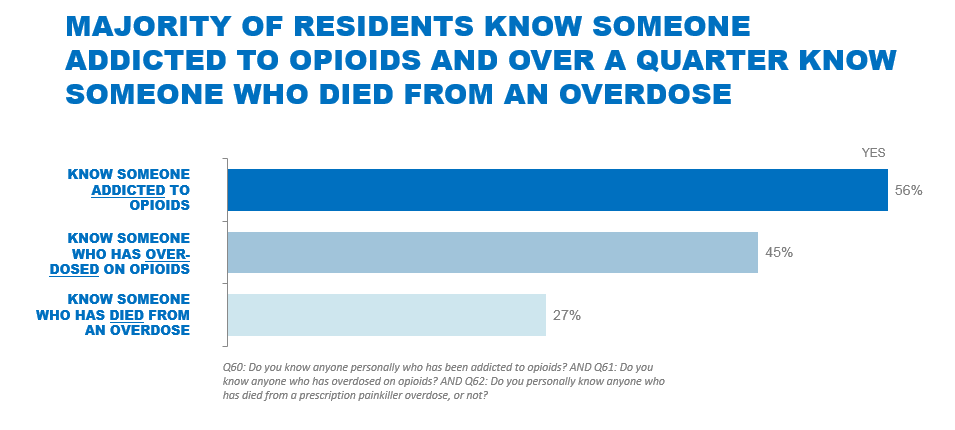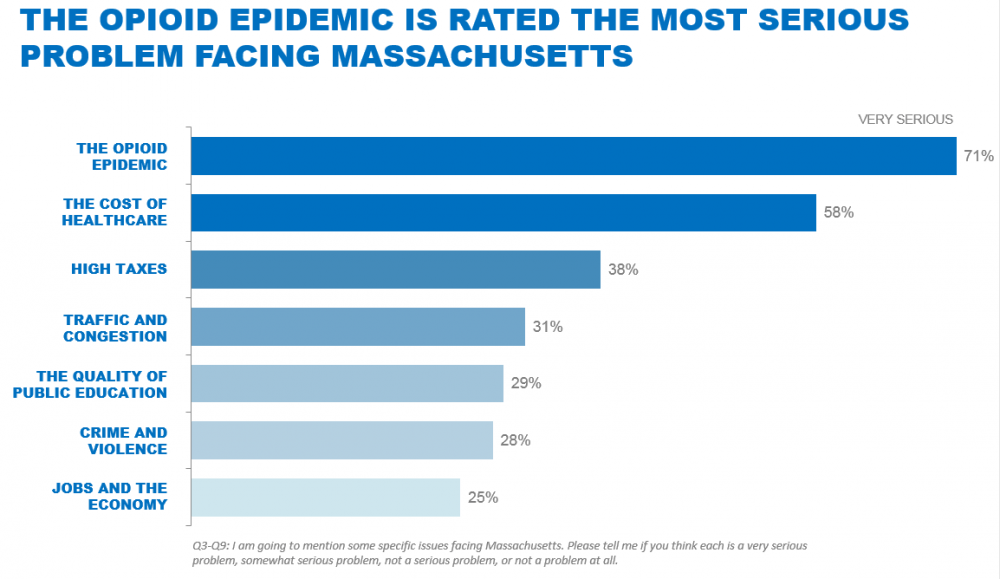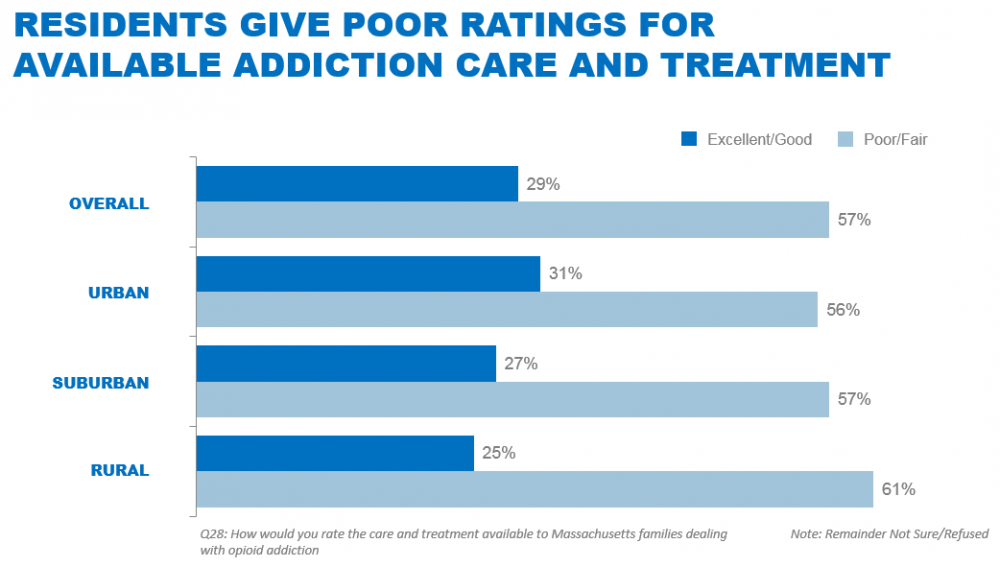Advertisement
A Quarter Of Mass. Residents Know Someone Who Died Of An Opioid Overdose, Survey Finds
More than a quarter of Massachusetts residents say they know someone who died of a fatal opioid overdose, according to a new survey from Blue Cross Blue Shield of Massachusetts.
The survey of 600 residents was done in January. It also found that the majority of respondents know someone addicted to opioids, and 71 percent say the opioid epidemic is the biggest problem facing the state, more so than health care costs, crime or the economy.

"I was really most surprised by the number of people who knew someone who overdosed and died, knew someone who was addicted and rated it as the number one problem in Massachusetts," said Blue Cross CEO Andrew Dreyfus. He said he hopes to use the survey as a way to measure the opioid epidemic.
"We thought it would be helpful to have a better understanding of where we are today in Massachusetts. We thought it would be good to establish a baseline to measure it over time and hopefully show improvements," he said.

Although most of those surveyed said the opioid epidemic is more a public health issue than a law enforcement issue, and 39 percent said they consider addiction a disease, most also said the major barrier to addressing the problem is a lack of personal responsibility and most people are to blame for their addiction.
"We still have some room there for improvement," said Andrew Kolodny, co-director of Opioid Policy Research at Brandeis University. "There are some people who played a role in the development of their addiction, but there are many people who became opioid addicted following a doctors' orders."
Other poll questions asked about treatment. Forty-three percent said more funding for treatment would help solve the problem, and more than half of those surveyed rated the care and treatment available in Massachusetts as either poor or fair. For an insurer like Blue Cross, Dreyfus said, that shows the treatment system needs to expand and diversify and offer things such as recovery coaches and other newer approaches to treating addiction.
Advertisement
"It is a problem and the treatment community is relatively young and improving, and we need to fortify the existing treatment programs, especially those in Massachusetts," Dreyfus said. "We need more treatment and we're willing to fund it."

Among the other findings in the poll: 64 percent said they approve of the way Gov. Charlie Baker is handling the problem, and that Massachusetts residents were more likely than other Americans to view the epidemic as a national emergency. Kolodny says Massachusetts is also starting to show a decline in its fatal overdose rate.
"I think the reason we're seeing the trend move in the right direction is because Massachusetts has better access to treatment," Kolodny said. "But this current epidemic is affecting every state in the country, and I think we will be paying a very high price for this problem, probably for the rest of our lives."
The audio atop this post is from a Radio Boston segment.
